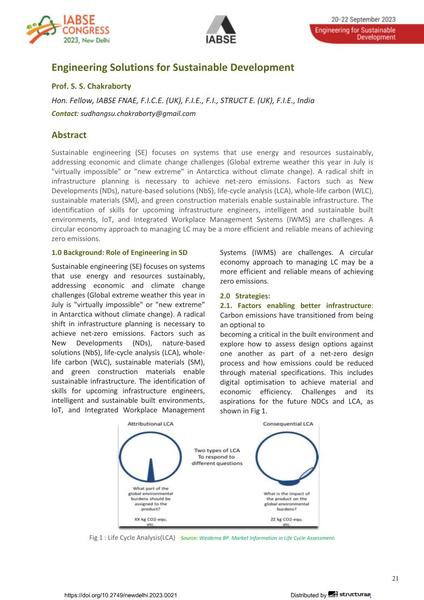Engineering Solutions for Sustainable Development

|
|
|||||||||||
Détails bibliographiques
| Auteur(s): |
S. S. Chakraborty
(Hon. Fellow, IABSE FNAE, F.I.C.E. (UK), F.I.E., F.I., STRUCT E. (UK), F.I.E., India)
|
||||
|---|---|---|---|---|---|
| Médium: | papier de conférence | ||||
| Langue(s): | anglais | ||||
| Conférence: | IABSE Congress: Engineering for Sustainable Development, New Delhi, India, 20-22 September 2023 | ||||
| Publié dans: | IABSE Congress New Delhi 2023 | ||||
|
|||||
| Page(s): | 21-33 | ||||
| Nombre total de pages (du PDF): | 13 | ||||
| DOI: | 10.2749/newdelhi.2023.0021 | ||||
| Abstrait: |
Sustainable engineering (SE) focuses on systems that use energy and resources sustainably, addressing economic and climate change challenges (Global extreme weather this year in July is "virtually impossible" or "new extreme" in Antarctica without climate change). A radical shift in infrastructure planning is necessary to achieve net-zero emissions. Factors such as New Developments (NDs), nature-based solutions (NbS), life-cycle analysis (LCA), whole-life carbon (WLC), sustainable materials (SM), and green construction materials enable sustainable infrastructure. The identification of skills for upcoming infrastructure engineers, intelligent and sustainable built environments, IoT, and Integrated Workplace Management Systems (IWMS) are challenges. A circular economy approach to managing LC may be a more efficient and reliable means of achieving zero emissions. |
||||
